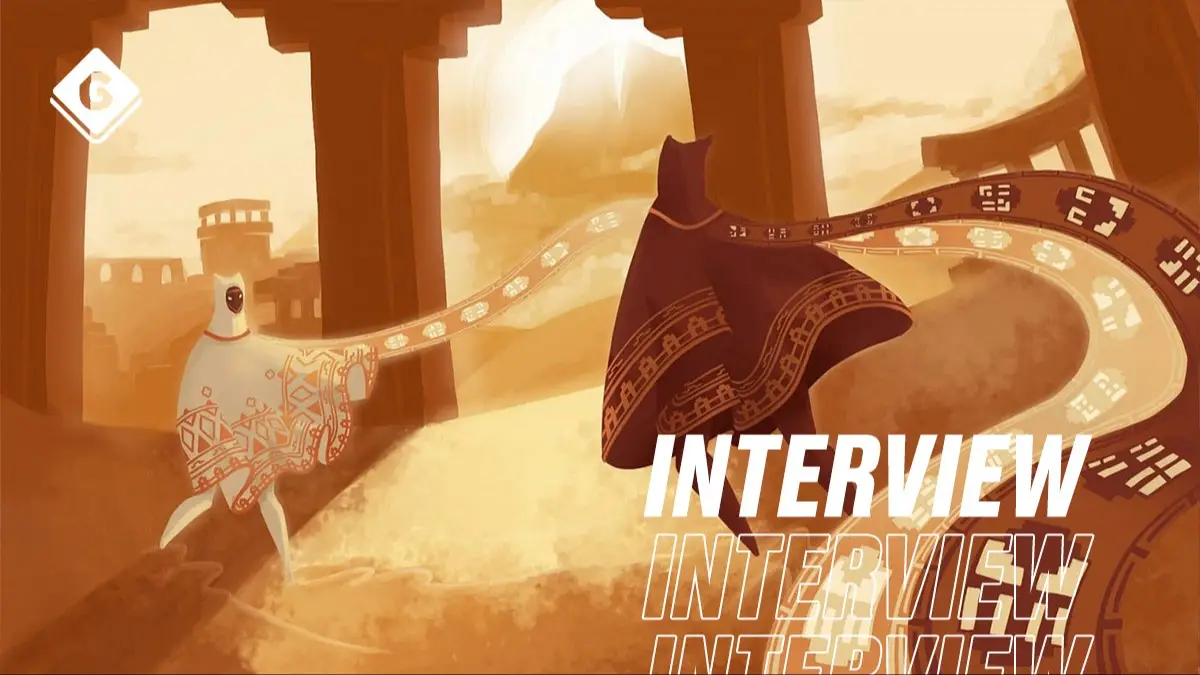
I’ve had the pleasure of attending the BAFTA Games Awards for two years in a row, and I’d like to try and convey just why this event is so special. I’ve spoken to nominees, industry attendees, and guest presenters both on the red carpet and backstage, and I’m always struck by the fact that everyone is on the same page. The BAFTA Games Awards is not about pomp and ceremony, although it is, of course, nice to get your gladrags on. Instead, it’s an event that puts community above all else. That community is, naturally, celebrated, but regardless of whether you walk away with an award or are even eligible for one, it’s a chance for those of us within the industry to enjoy the kinship we have in one another, whether that’s able to be reflected in a gold trophy or not.
There is one noticeable absence at the event, and that’s the fans - the people who the video games industry is there to serve. But if you fit that box, worry not, as a brand new event is on the way that’ll allow you to inhabit the celebratory spirit of the BAFTA Games Awards. BAFTA Games in Concert is an upcoming concert experience that’s set to be followed by a tour, celebrating the music of various BAFTA winners and nominees.
In collaboration with Nibbs Events and Esk, the world premiere of BAFTA Games in Concert will take place at the Royal Festival Hall, Southbank Centre, in London on Saturday 31 January 2026. That premiere will then be followed by a UK and international tour with additional dates to be confirmed in the near future via the tour’s website. Tickets for the London date - which’ll feature music from the likes of Baldur’s Gate 3, Everybody’s Gone To The Rapture, Assassin’s Creed, Journey, Hitman: Contracts, Cuphead, and Tomb Raider: Legend - are on sale now.
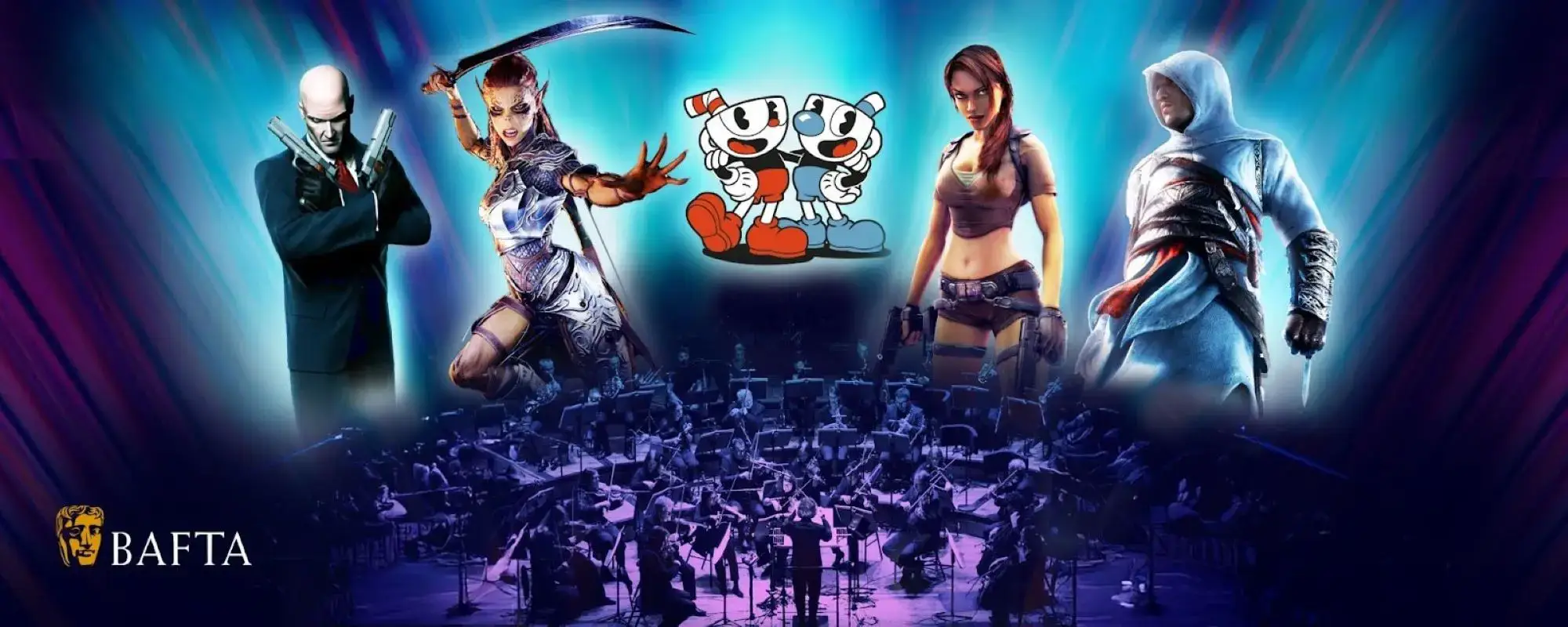
Advert
That music will be performed by the prestigious BBC Concert Orchestra under the direction of Austin Wintory, the genius behind the Journey soundtrack. Ahead of the concert, I recently sat down with Austin where we revisited his work on Journey, whilst touching upon his excitement for the concert and the thrilling ever-growing demand of live events of this nature.
I couldn’t help but begin by bringing up Journey, now considered to be one of the greatest games of all-time. Austin’s soundtrack made history as the only video game soundtrack to date to be nominated for the Grammy Award for Best Score Soundtrack for Visual Media. It goes without saying that Austin could never have predicted the level of success he was a part of, but I was curious if had any inkling that he was involved in something unprecedentedly special.
“You're definitely not wrong that I did not foresee the kind of extent to which [Journey’s] release would reach,” he began. “The reaction was so leagues beyond anything I expected. Still to this day, the fact that it somehow garners the reactions that it does has never stopped being surreal. I will say, I remember being in awe of the game that they were making and feeling very, very lucky to have a kind of front row seat to witness that. I remember saying to Jenova Chen, the director of the game and one of the founders of Thatgamecompany, [...] something to the effect of, ‘You are making my dream game, but I wouldn't have known that it was my dream game until I heard you pitch it,’ so it's a fascinating thing.”
“I was in my mid-twenties. I've been a gamer my entire life. And I think, you know, the mid-twenties, those earliest days of true adulthood, a lot of us have a tendency to kind of say, ‘I’ve been excited by certain kinds of things up to this point, and I'm now sort of looking for something new and something sort of reflective of where I'm at in life.’ I think we all have those kinds of periodic reboots where you just sort of start looking for a refreshed experience - and this was exactly right in that window for me, and I remember just thinking, ‘This is the kind of game I think I'm looking for’, except I didn't know that it was even possible.”
I was curious to learn whether moving on from Journey, Austin felt any pressure considering his historic Grammy nomination.
“I don't take credit for the results that Journey enjoyed. I was part of the team, but it was very much, you know, a group effort,” he told me. “There are lots of great games that come out that just somehow escape notice, [...] but it came out at the right time and got, you know, support from Sony and marketing and the audience was seemingly primed to receive it. Imagine if Journey had come out the same day as Silksong. No one would have known it existed. You know what I mean? Sometimes things are just unlucky in a way that no one has control over. I remember not being even remotely tempted into the delusion of ‘Yes, I am awesome and Journey is because of me and therefore I am very important,’ or anything like that. It was always very clear that so much had to go right that I had zero control over.”
He continued, “That’s very freeing because it makes you realise, I'm always gonna work as hard as I possibly can on everything that I do. [...] My fundamental goal is to just keep making music and keep working with people that are inspiring and who, you know, kind of challenge you to grow.”
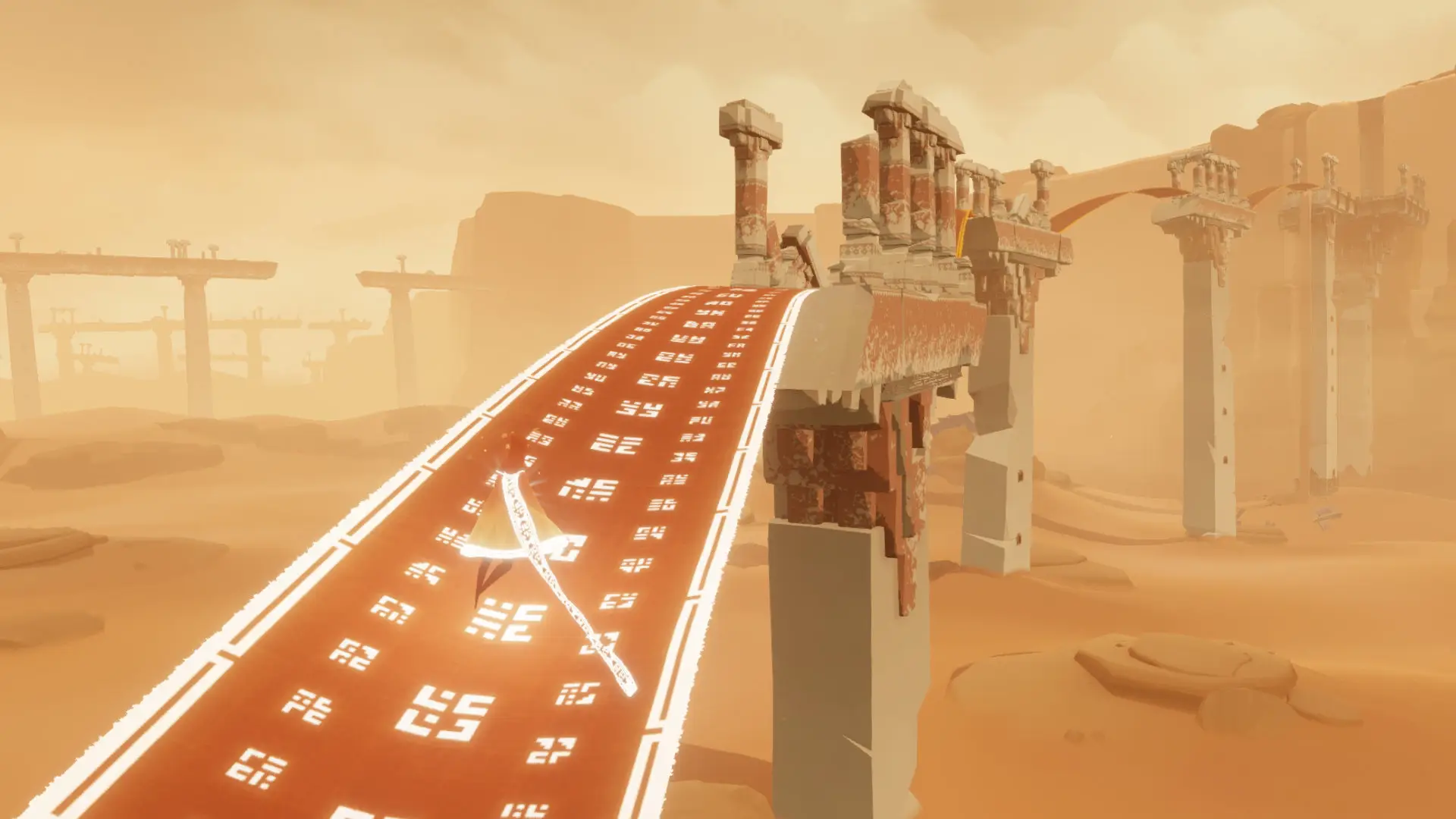
For me, I’m always drawn in by a game’s narrative, and wordless narratives, like that which you’ll find in Journey, interest me greatly. I asked Austin how his approach differed working on a wordless tale like Journey or Sword of the Sea where the music carries far more of the emotional weight than, say, it might do compared to his work on the more conventional story you’ll find in Assassin’s Creed Syndicate.
“On a pragmatic level, without question [there’s a difference]. We take so much of the context into consideration when working on the music,” he said. “And so knowing that there's dialogue in the case of a game like Syndicate, [...] all of that definitely influences the approach on a kind of core compositional level. I would say they're probably more alike than they are different just because even an abstract story or one that's meant to let you kind of project your own interpretation onto it, like Journey or Abzu, [...] the rudiments of storytelling are still there.”
“Even if it's sort of abstract, we still end up talking in these terms of act one, act two, and act three. [...] The way we talk about narrative is the same regardless of how literally that narrative is exposited to the player. But that said, of course, pragmatically, yes, no question.”
I wanted to stick with Assassin’s Creed. It’s an interesting franchise as while it does boast a recognisable identity, so too does each instalment feel individual. I was interested to learn what kind of challenges that threw up for Austin with regards to his work on Syndicate.
“I've had a handful of experiences like this and usually, It's about some kind of homage, or at least recognition,” he began. “I definitely appreciate the most when I see people make something where it’s like a relay race where they pick up the baton with a lot of reverence and respect, and they also then try to move forward with it, you know? Perhaps the greatest example of this in media recently was the show Andor, which felt very respectful of Star Wars as an IP but it also quite boldly went to a bunch of places Star Wars never went in all kinds of different ways. That to me is sort of the absolute pinnacle of the kind of thing that I try to bring to my work.”
“I know you're asking about Syndicate, but as a parallel example, I did a game called Aliens: Fireteam Elite where my score is loaded with stuff that I probably wouldn't do. It has little winks and nods to Jerry Goldsmith's music from the original Ridley Scott Alien film and James Horner's music from the James Cameron Aliens, and it even has little winks and nods to Elliot Goldenthal's music from David Fincher's Alien 3. It’s very intentional.”
“Syndicate was a unique one because part of the premise of why they wanted me to score the game was to kind of throw all the brand consistency away. Obviously, Ubisoft cares deeply about the kind of integrity of the franchise and there's whole departments whose job is to oversee that, but they did say, you know, ‘We want to try something different.’ I had to find somewhere in this huge sea of many hours of music to quote the brand's main theme, which is ‘Ezio's Family’ by Jesper Kyd, but with a Syndicate spin. Other than that, I basically had a blank page.”
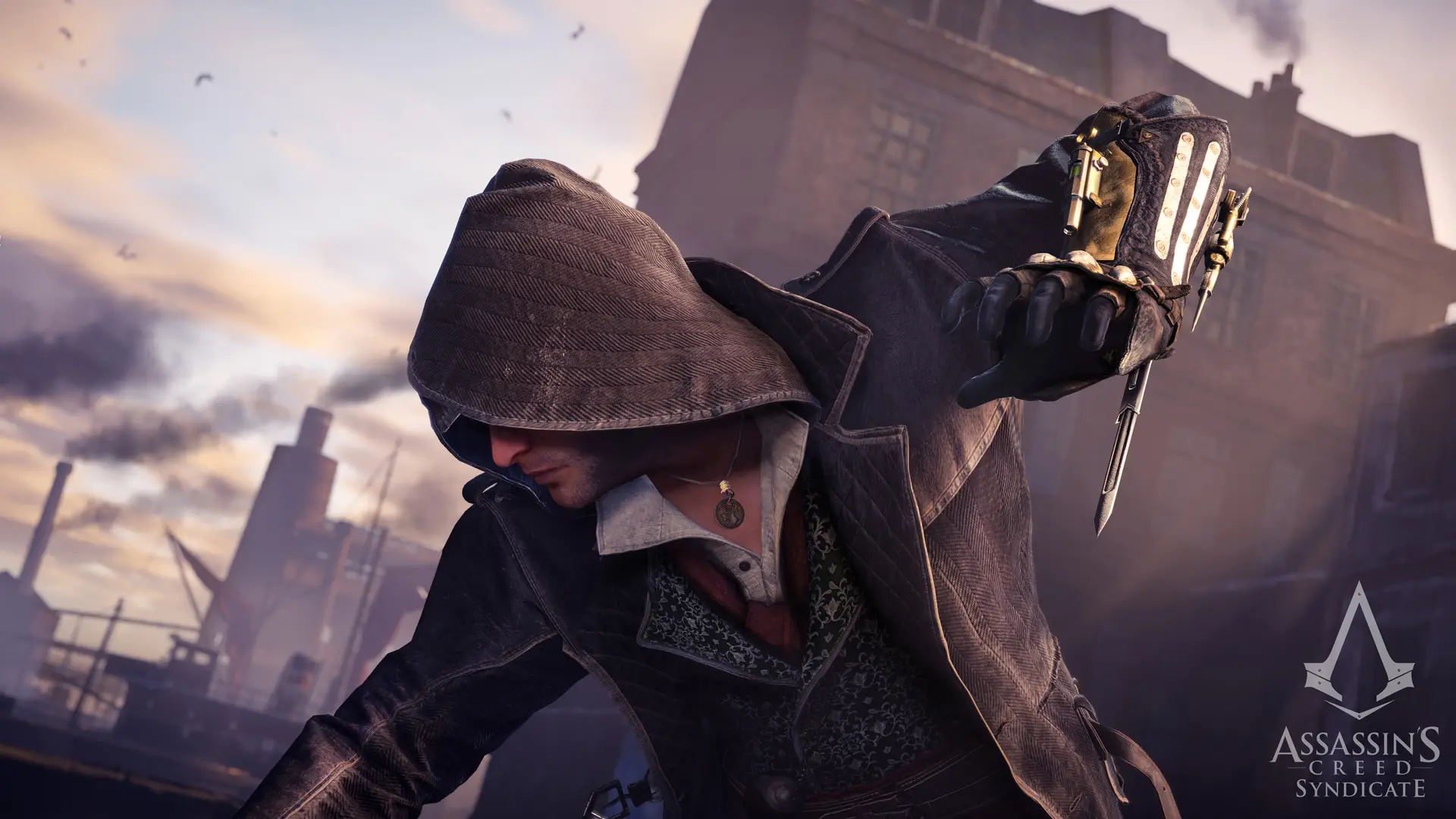
“It was so much fun to do,” Austin added. “It was a massive challenge; some of the most intricate music I've ever written, and it was by far the most difficult music I've ever asked studio musicians to perform. They suffered in the studio like I've never subjected anybody to, but it was great fun. Really just a wonderful experience.”
I then asked Austin if he was ever influenced by the great works of a certain genre whenever he’s working within that space, or if it's best to let the game speak for itself.
“I do try to be that, that last point of it, letting the game be the guide,” he replied. “ Both the game and also just the conversations with the developers where we kind of end up talking for hours about our life and our interests, and that can sometimes open up doors or take you down these rabbit holes where you end up coming up with an idea that may not have necessarily been obviously sort of suggested by the game, but could be an interesting juxtaposition.”
“I do always look for a way to do something that doesn’t feel like the obvious approach, but I try to balance that with, to the spirit of your question, asking ‘Why are there norms or cliches?’ There must be a reason that kind of reliably offers some kind of emotional payoff that we're looking for, and so that, occasionally will inform, you know, things as well, but, but in general, I try to not. I try to really truly treat everything as a blank page.”
Our conversation turned to the upcoming BAFTA Games in Concert where, as I mentioned, Austin’s Journey score is featured. Austin will also be conducting the event, helping to prepare and put together the evening’s line-up. I was eager to discover how it felt to get that visceral live reaction from fans when video games are so often played in isolation away from prying eyes.
“It’s pretty astonishing honestly. I've been very lucky that live performance has been a recurring feature of my career almost from the beginning,” Austin replied. “The very first game I worked on almost 20 years ago was Flow, and I remember there were occasions to perform Flow live in concert with an orchestra. They wanted to do a video game concert again a couple of years later and asked if I had anything new to perform. I said, ‘I’m actually working on a new project’, which was Journey. I said I could perform it as a work-in-progress. We're normally not even allowed to do that, but the game had already been announced, and you could hear some of the music on the trailer.”
“What happened was we hadn't figured out the end of the game. Journey's entire final section was going through lots of changes. We knew that it was all about the player reaching the mountain and we were trying to make it feel like this cathartic experience, but everything was just not working. It either felt too minimalist with no real emotional payoff or ham-fisted and becoming very gamey and sort of just not really part of the vocabulary of what the game had been up to that point.”
He continued, “I did draft after draft after draft and was just never feeling like it was landing on what it ought to be and so then in parallel to this struggle, this concert came along. [...] Because I didn't know how the actual score in the game was gonna end, I just thought, ‘I'll just end this piece in a way that makes sense to the kind of internal logic of this piece and has no attempted bearing on the actual game itself.’ [...] This concert was in Los Angeles. I invited members of the Journey team to come hear it, and I remember Jenova calling me the next day saying, ‘I think you've figured out the ending. We need to go small. We can't keep trying to go big.’ It just kind of clicked and so then we spent the next few months figuring out what that could mean for the game.”
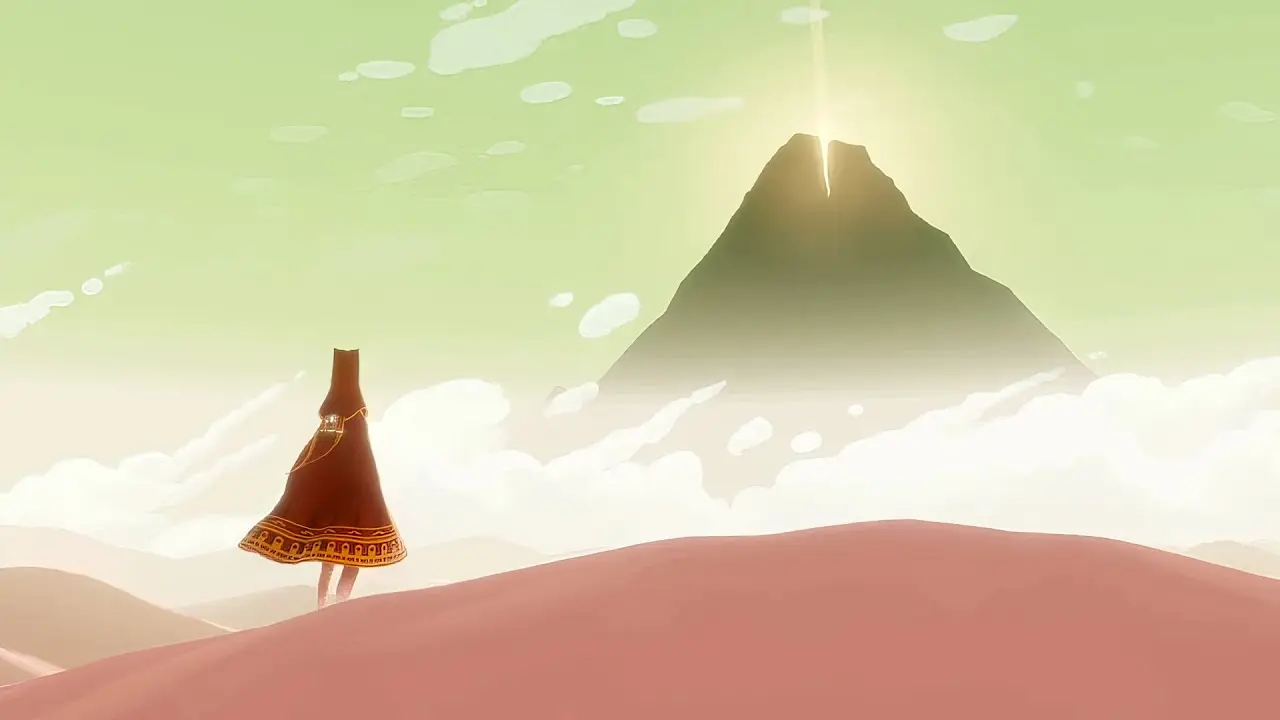
“Basically, ever since then, I realised concerts are more than just potentially a kind of celebration. They're a chance to sort of see the thing from a whole new angle and happily, yeah, I've had a chance to do a lot of them. Certainly, Journey has been the driving force of that. [...] I've been very lucky that a bunch of entities have basically just turned to me and said, ‘Can we just hand you the keys and can you build this thing?’, and the BAFTAs were one such organisation. They just reached out earlier this year and said, ‘We'd like to do this show. Can you help us?’ I have a lot of opinions on the right way to do a thing like that, most of which they were already on board with, and a few of which became a discussion and they've been very gracious in sort of indulging some of my ideas. The sense of community with my fellow composers is something really important to me. [...] There's some contingent of people that seem to like what I do and I'm super grateful for that, but I truly take far more joy in sort of using whatever goodwill that has brought me to say now, ‘I'd love to share with you some excellent and inspiring work by my friends, my colleagues, my predecessors’, and the BAFTA concert has definitely enabled me to do that.”
In addition to conducting his own music, Austin will also be responsible for bringing to life several other works that I mentioned earlier, including the likes of Borislav Slavov’s work on Baldur’s Gate 3 and Kristofer Maddigan’s work on Cuphead. I asked if Austin delights in being a custodian of his peer’s work.
“The goal is to do justice to this work,” Austin began. “We're trying to pick pieces that all have sort of enduringly stood the test of time and which really mattered for the games that they were made for. The idea with this concert is that it’s not just a celebration of an award, because at the end of the day, there's a lot of factors that govern how an award is given out. On the one hand, awards are supposed to be trying to kind of really have a thumb on the pulse of what's mattering to people, but also from an inside the industry perspective, look at which projects are causing a ripple effect that really are going to change how we do this moving forward.”
“When BAFTA approached me, they seemed to totally agree with that philosophy and so I said, ‘Let's build this program with that in mind. Let's try to pick music that sort of is one of each or both of those things.’ I do like the idea of saying, look, you know, ‘Here's some that are unambiguously popular like Cuphead. Here’s some that you may have forgotten about, but it got a nomination [and win] and for a good reason, because it's amazing and it's definitely changed the game, and how we talk about this stuff.’ It should be fun and a nice way to kind of highlight things again with a novel unifying theme.”
Tickets are on sale now for BAFTA Games in Concert at Royal Festival Hall, Southbank Centre, London, to be held on 31 January 2026 with additional tour dates and tickets to follow.
Topics: Interview, Assassins Creed, Ubisoft, Indie Games